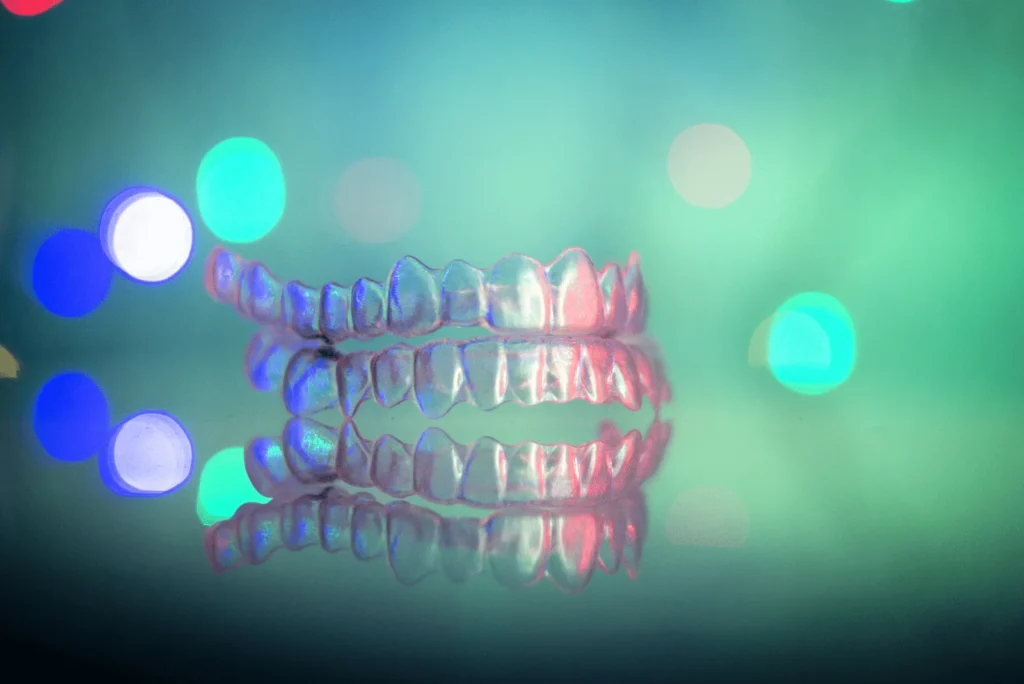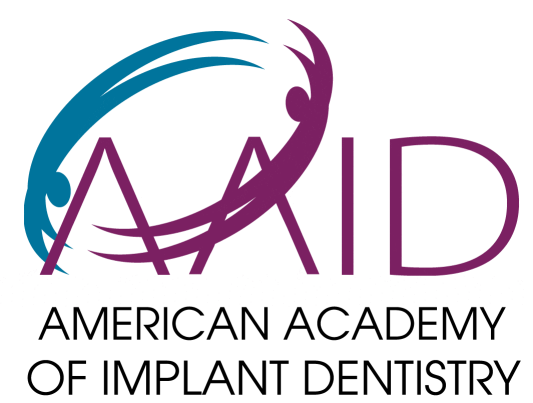Is Invisalign safe when pregnant, and can expectant mothers safely continue or begin clear aligner treatment during their pregnancy? This is one of the most important questions we address at Lansdowne Family Dental, as many women find themselves either in the middle of Invisalign treatment when they become pregnant or considering starting orthodontic care during pregnancy. As a seasoned dentist with over 15 years of experience in orthodontic care, I understand the unique concerns expectant mothers face when balancing their dental health needs with the safety of their developing baby.
Pregnancy brings numerous changes to a woman’s body, including hormonal fluctuations that can significantly impact oral health, gum sensitivity, and overall comfort during dental treatments. Understanding how these physiological changes interact with Invisalign treatment is crucial for making informed decisions about orthodontic care during this special time.
In this comprehensive safety guide, we’ll examine the current research on Invisalign safety during pregnancy, explore how pregnancy-related hormonal changes affect oral health and orthodontic treatment, discuss the potential benefits and risks of continuing or starting Invisalign while pregnant, outline special considerations for expectant mothers undergoing clear aligner therapy, and provide you with expert guidance to help you make the best decision for both your oral health and your baby’s well-being.
Understanding Invisalign: A Brief Overview
Before we delve into the specifics of Invisalign during pregnancy, let’s briefly review what Invisalign treatment entails:
Invisalign is a modern orthodontic treatment that uses a series of clear, removable aligners to gradually straighten teeth. Unlike traditional braces, Invisalign offers:
- Discretion: The clear aligners are nearly invisible when worn.
- Removability: You can take them out for eating and oral hygiene.
- Comfort: The smooth plastic design minimizes irritation to cheeks and gums.
- Convenience: Fewer orthodontic appointments are typically required compared to traditional braces.
Now, let’s address the main question at hand: Is Invisalign safe during pregnancy?
👉 Book an Invisalign Appointment Today!

The Safety of Invisalign During Pregnancy
Based on extensive research and clinical experience, I can confidently say that Invisalign treatment is generally considered safe during pregnancy. However, as with any medical treatment during pregnancy, there are important considerations and precautions to keep in mind.
Pre-Pregnancy Planning: The Ideal Scenario
If you’re planning to get pregnant and considering Invisalign, it’s ideal to start treatment before conception. Here’s why:
- X-rays and Scans:
- The digital scanning and x-rays needed to create your custom aligner trays should be completed before pregnancy.
- Exposure to high doses of radiation from x-rays during early pregnancy (about 2-8 weeks after conception) may increase the risk of fetal growth restriction and birth defects.
- While modern dental x-rays use very low doses of radiation, we always err on the side of caution during pregnancy.
- Adjustment Period:
- Starting treatment about a month before conception allows your mouth time to adjust to the aligners.
- This adjustment period can help minimize discomfort once you’re pregnant.
- Treatment Progress:
- Beginning treatment pre-pregnancy allows you to make significant progress before potential pregnancy-related challenges arise.
To schedule your Invisalign treatment in Ashburn, Leesburg, Sterling, or Lansdowne, VA, choose Lansdowne Family Dental for quality dental care. We offer various dental services with a patient-centric approach. Start your dental journey with us. Contact us!
Timing During Pregnancy: When to Start or Continue Treatment
If you’re already pregnant and considering Invisalign, or if you become pregnant during treatment, here’s what you should know about timing:
- First Trimester (Weeks 1-12):
- It’s generally best to avoid starting treatment during the first trimester.
- This is due to morning sickness, which can interfere with aligner wear, and the critical period of fetal development.
- If you’re already in treatment, you can typically continue, but inform your orthodontist about your pregnancy.
- Second Trimester (Weeks 13-26):
- This is often the ideal time to start treatment if you haven’t begun pre-pregnancy.
- Morning sickness typically subsides, and you’ll likely feel more comfortable.
- Energy levels often increase during this period, making it easier to maintain good oral hygiene.
- Third Trimester (Weeks 27-40):
- Starting treatment is still possible, but you may experience more discomfort due to increased sensitivity and swelling.
- The growing baby may put pressure on your diaphragm, potentially causing shortness of breath, which some patients find challenging when wearing aligners.
Challenges of Invisalign During Pregnancy: What to Expect
While Invisalign is safe during pregnancy, it’s important to be aware of potential challenges you might face:
- Hormonal Changes:
- Pregnancy hormones, particularly relaxin and progesterone, can make your teeth looser and more sensitive to movement.
- This can potentially speed up tooth movement, but may also cause discomfort.
- Gum Sensitivity:
- Increased blood flow can lead to swollen, sensitive gums.
- This condition, known as pregnancy gingivitis, affects up to 75% of pregnant women.
- Regular dental cleanings and good oral hygiene are crucial during this time.
- Morning Sickness:
- This may necessitate more frequent removal of aligners.
- Increased acidity in the mouth from vomiting can soften tooth enamel, so it’s important to rinse with water and wait 30 minutes before brushing.
- Discomfort:
- Pregnancy can amplify the initial discomfort associated with new aligners.
- This is typically manageable with over-the-counter pain relievers approved by your obstetrician.
- Dietary Changes:
- Pregnancy cravings and aversions may make it challenging to maintain the recommended 22 hours per day of aligner wear.
- Work with your orthodontist to develop strategies for managing this.
Dental Changes During Pregnancy: What You Need to Know
Pregnancy can affect your oral health in several ways, which may impact your Invisalign treatment:
- Increased Risk of Tooth Decay:
- Due to changes in diet, possibly increased snacking, and morning sickness.
- The acidic environment created by morning sickness can erode tooth enamel.
- Gingivitis:
- Pregnancy hormones can increase the risk of gum inflammation.
- Regular professional cleanings and diligent home care are essential.
- Periodontal Disease:
- If gingivitis is left untreated, it can progress to more serious gum disease.
- This can potentially affect your overall health and pregnancy outcomes.
- Loose Teeth:
- Hormonal changes can affect the ligaments and bones supporting your teeth.
- This is usually temporary and resolves after pregnancy.
- Pregnancy Tumors:
- These are non-cancerous growths that may appear on the gums, usually during the second trimester.
- They typically disappear after pregnancy but may require removal if they interfere with eating or oral hygiene.
Caring for Your Invisalign During Pregnancy: Best Practices
Proper care of your aligners is crucial, especially during pregnancy. Here are some detailed tips:
- Regular Cleaning:
- Clean your aligners every morning and night with a soft-bristled toothbrush.
- Use lukewarm water and a gentle, clear soap if needed.
- Consider using the Invisalign cleaning system for optimal results.
- Avoid Harsh Chemicals:
- Don’t use soap with dyes, denture cleaner, or mouthwash on your aligners.
- These can damage the aligners or leave an unpleasant taste.
- Rinse Frequently:
- Rinse aligners before wearing and after removal.
- This helps prevent dry saliva and plaque from accumulating.
- Proper Storage:
- Always store your aligners in their case when not in use.
- This prevents loss and exposure to bacteria.
- Maintain Oral Hygiene:
- Brush and floss after every meal before reinserting your aligners.
- Consider using an interdental brush or water flosser for thorough cleaning.
- Wear Time:
- Aim to wear your aligners 20-22 hours a day.
- If morning sickness interferes, discuss adjusting your wear schedule with your orthodontist.
- Regular Check-ups:
- Maintain your scheduled dental and orthodontic appointments.
- Inform all your healthcare providers about your pregnancy and Invisalign treatment.
Special Considerations During Pregnancy
- Morning Sickness:
- If you experience frequent nausea, remove your aligners during these episodes.
- Rinse your mouth with water or a fluoride mouthwash after vomiting.
- Wait at least 30 minutes before brushing to avoid damaging softened enamel.
- Increased Sensitivity:
- Communicate any discomfort with your orthodontist.
- We may need to adjust your treatment plan or provide you with sensitivity-reducing products.
- Nutritional Needs:
- Ensure you’re meeting your nutritional needs while adhering to Invisalign wear guidelines.
- Consider taking your prenatal vitamins when you have your aligners out for meals.
- Hydration:
- Stay well-hydrated, which is crucial for both your pregnancy and oral health.
- You can drink water with your aligners in, but be sure to rinse afterwards.
- Stress Management:
- Pregnancy and orthodontic treatment can both be stressful. Practice relaxation techniques and don’t hesitate to seek support.
Making the Decision: Invisalign and Pregnancy
Ultimately, the decision to start or continue Invisalign treatment during pregnancy should be made in consultation with your healthcare providers. Here at Lansdowne Family Dental, we’re committed to working closely with you and your obstetrician to ensure your oral health plan aligns with your overall pregnancy care.
Remember, every pregnancy is unique, and what works for one person may not be ideal for another. We’ll consider factors such as:
- Your overall health
- The stage of your pregnancy
- Your oral health status
- Your comfort level with the treatment
- Your lifestyle and ability to comply with treatment requirements
Frequently Asked Questions
To address some common concerns:
- Q: Will Invisalign affect my baby’s development? A: When used as directed, Invisalign aligners are made of materials considered safe and do not release harmful substances that could affect your baby.
- Q: Can I start Invisalign in my third trimester? A: While possible, it’s generally more comfortable to start earlier in pregnancy or wait until after delivery. We can assess your individual situation and advise accordingly.
- Q: What if I become pregnant during Invisalign treatment? A: Inform your orthodontist immediately. In most cases, treatment can continue with possibly some adjustments to your care plan.
- Q: Will pregnancy hormones speed up or slow down my treatment? A: Hormonal changes can affect tooth movement, potentially speeding up treatment in some cases. However, this varies greatly between individuals.
- Q: Are there any alternatives to Invisalign during pregnancy? A: Depending on your specific orthodontic needs, we can discuss alternative treatments or the option of postponing treatment until after pregnancy.
Conclusion: A Personalized Approach to Invisalign During Pregnancy
At Lansdowne Family Dental, we believe in providing personalized care that takes into account all aspects of your health and life circumstances. If you’re pregnant or planning to become pregnant and are interested in Invisalign, we encourage you to schedule a comprehensive consultation with us.
During this consultation, we will:
- Perform a thorough examination of your oral health
- Discuss your orthodontic goals and concerns
- Review your medical history and pregnancy status
- Explain in detail how Invisalign works and what to expect
- Address any questions or concerns you may have
- Work with you to create a customized treatment plan
We’ll work with you to create a treatment plan that ensures both your oral health and the health of your baby. Whether that means starting Invisalign before pregnancy, during your second trimester, or waiting until after you’ve given birth, we’re here to support you every step of the way.
Remember, a healthy smile contributes to overall health, which is especially important during pregnancy. Let’s work together to find the best solution for your unique situation and help you achieve the beautiful, healthy smile you deserve.
Your journey to a straighter smile doesn’t have to be put on hold because of pregnancy. With proper care, guidance, and a personalized approach, you can safely pursue your orthodontic goals while nurturing your growing family. At Lansdowne Family Dental, we’re committed to supporting you through this exciting time in your life, ensuring your oral health contributes positively to your overall well-being and that of your baby.






